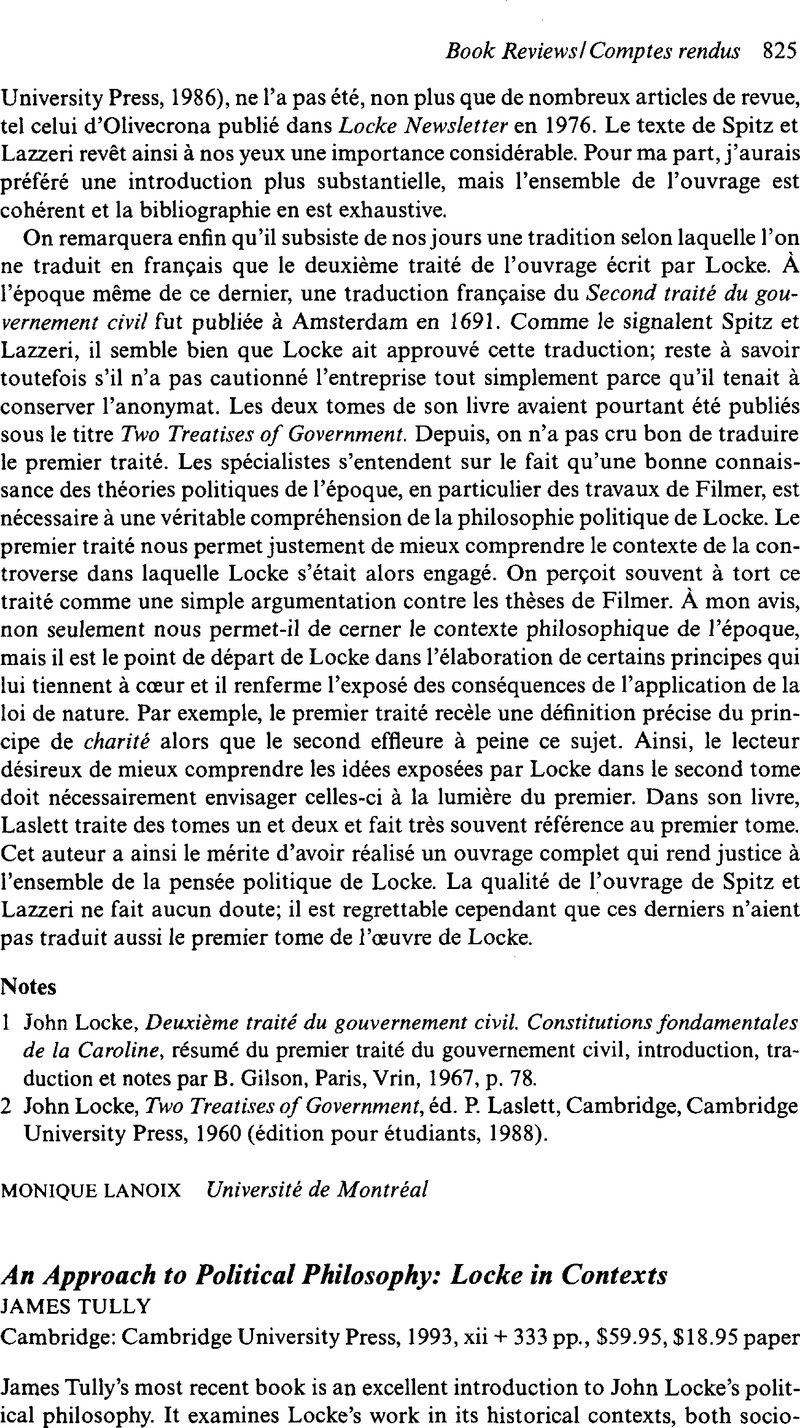No CrossRef data available.
Article contents
An Approach to Political Philosophy: Locke in ContextsJames Tully Cambridge: Cambridge University Press, 1993, xii + 333 p., $59.95, $18.95 paper
Published online by Cambridge University Press: 13 April 2010
Abstract

- Type
- Book Reviews/Comptes rendus
- Information
- Dialogue: Canadian Philosophical Review / Revue canadienne de philosophie , Volume 35 , Issue 4 , Fall 1996 , pp. 825 - 829
- Copyright
- Copyright © Canadian Philosophical Association 1996
References
Notes
1 Unless otherwise indicated, page numbers in parentheses are references to Tully's An Approach to Political Philosophy. References to Locke's An Essay concerning Human Understanding (Essay), edited by Nidditch, P. H. (Oxford: Clarendon Press, 1975),Google Scholar will be by book, chapter, and section. References to Locke's Two Treatises on Government (TT), edited by Laslett, Peter (New York: Mentor Books, 1963), will be by treatise and section.Google Scholar
2 Page references in the quotation are to Macpherson, C. B., The Political Theory of Possessive Individualism (Oxford University Press, 1962).Google Scholar
3 In fairness it should be acknowledged that Locke's own use of the term 'property' is ambiguous. While the broad notion of property for which Tully argues in Chapter 4 is found in Two Treatises 2:123, at other points Locke seems concerned solely with real property. See, for example, TT 2:120.




